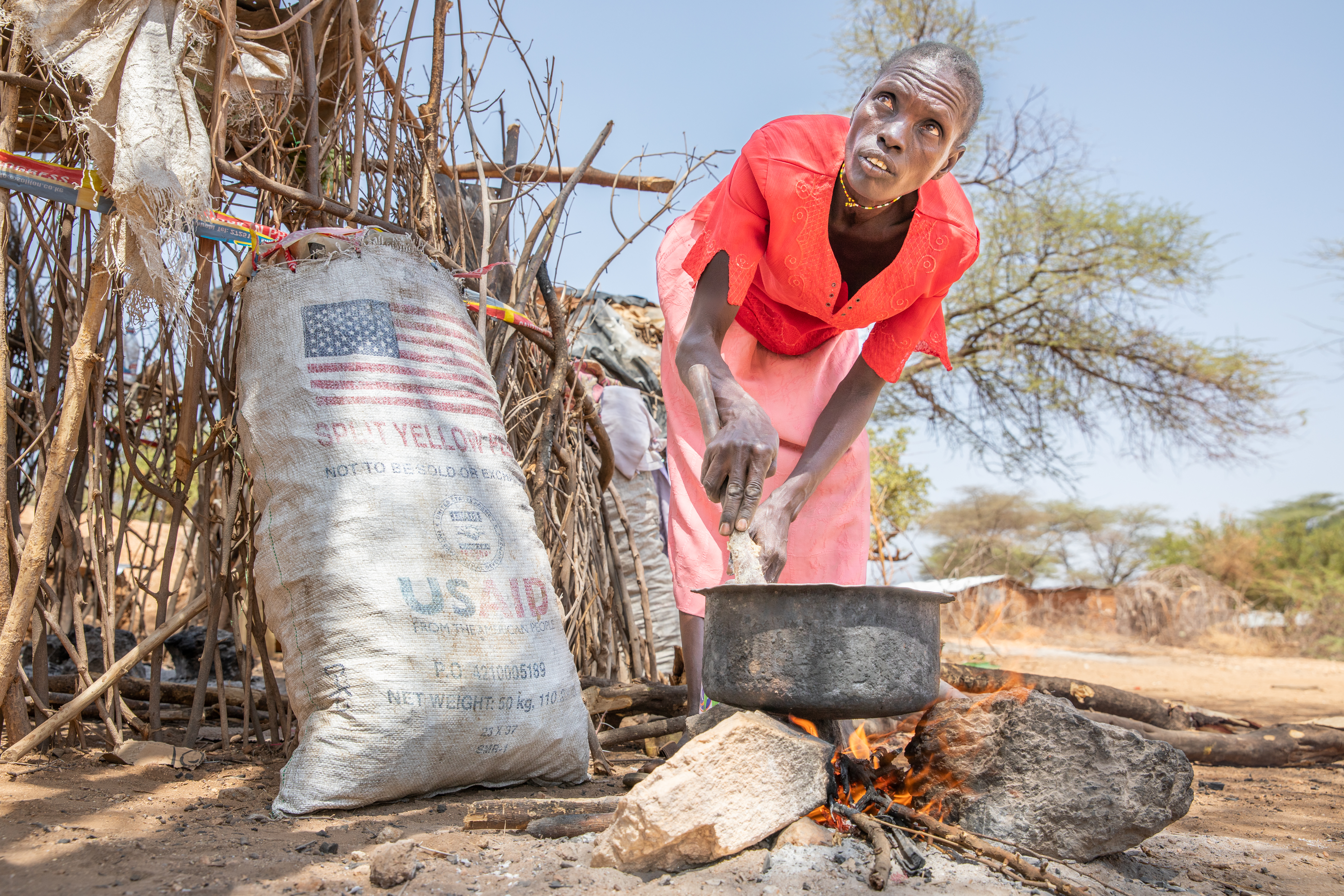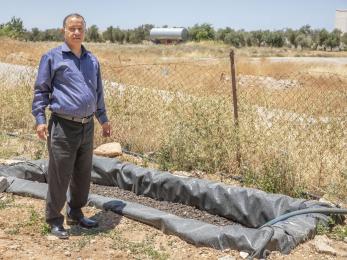Everybody wins when we support people with disabilities

Earlier this year, Lama couldn’t wait to get back in the classroom. Lama, like many students in Jordan, was finally returning to school after an almost yearlong closure due to the COVID‑19 pandemic. As a student with a disability, going back to school for Lama was essential. Although her parents supported Lama with online learning, which was constantly interrupted by internet outages, it was no replacement for school where she attends classes with students without disabilities and receives specialized lessons from her shadow teacher who provides support and stability to her lessons. Our team works directly with local Jordanian schools to provide training, staff assistant teachers, and help create new systems to support equitable learning.
It was not long ago that Lama would not have been able to register for school, no less receive personalized help. When we began to lead inclusive education programming for children with disabilities in 2008, many schools outright refused to register children with visible disabilities, autism spectrum disorders, and intellectual disabilities. It was understandable since schools were not equipped to support students with disabilities—but it didn’t make the heartbreak for parents and children feel any less.
Across the years, we’ve raised awareness amongst schools and parents, who were both worried for the safety and quality of education for students with disabilities. We are now collaborating with 65 schools to offer inclusive education support, and have worked with more than a hundred schools since our program began. As of 2018, almost 2% of students have a disability according to the Ministry of Education, and we believe more children with disabilities and their families will feel encouraged to go to school as support becomes more widely available. In fact, our team was ecstatic about the recent news from the Ministry of Education adopting our inclusive education guidelines.
Our philosophy of inclusive education is all children benefit when high quality education is offered in schools. Everybody wins in a classroom when we take into account everyone’s needs. From creating adapted desks and chairs to building a prosthetic for students, we’ve seen firsthand how helping children with disabilities participate in class with their peers helps them gain confidence in themselves and their abilities.
According to the World Health Organization, about 15% of the world’s population live with a disability. In our work as humanitarians, we are especially conscious of how people with disabilities can be further marginalized in communities facing big challenges. Outside of the classroom, and across different types of programs, I’m always excited to hear about how my colleagues around the world are supporting people with disabilities. In Kyrgyzstan, the Mercy Corps team designed and built outdoor latrines for a community that featured ramps and handrails for greater accessibility. For a COVID‑19 awareness campaign, our team in Indonesia offered ideas on how to best reach community members with disabilities during a time when information was vital.

I’m heartened to see stories of how our programs have helped people with disabilities build sustainable livelihoods. This spring, the Iraq team worked with people with disabilities to find job opportunities, develop skills, and provided wheelchairs for 49 people. The Liberia team recently wrapped up business skill classes, specifically focusing on entrepreneurs with disabilities. In Timor-Leste, their team offered business trainings to help small companies grow and hire people with disabilities like Fredrico who said, “Disabled people deserve the same opportunity as other people. Sometimes, people just look at a person’s disability, but they don’t really see the capacity that disabled people have. All disabled people have their own capacity, their own knowledge, where they can do something.”
While my own work is focused on supporting students in the classroom, it is always our hope that the world outside of school can be a place where our students can thrive as well. As long as we continue to have more intentional and inclusive opportunities for all, the future will be promising for everyone.





